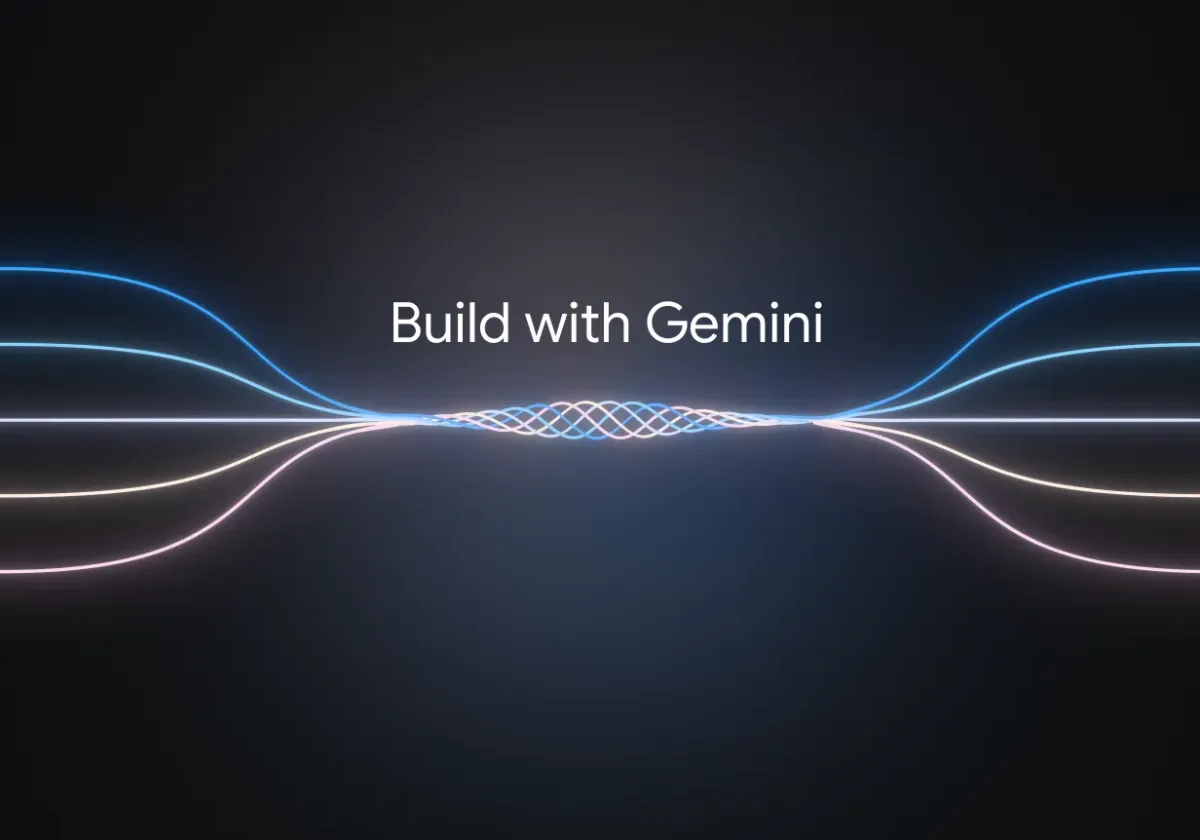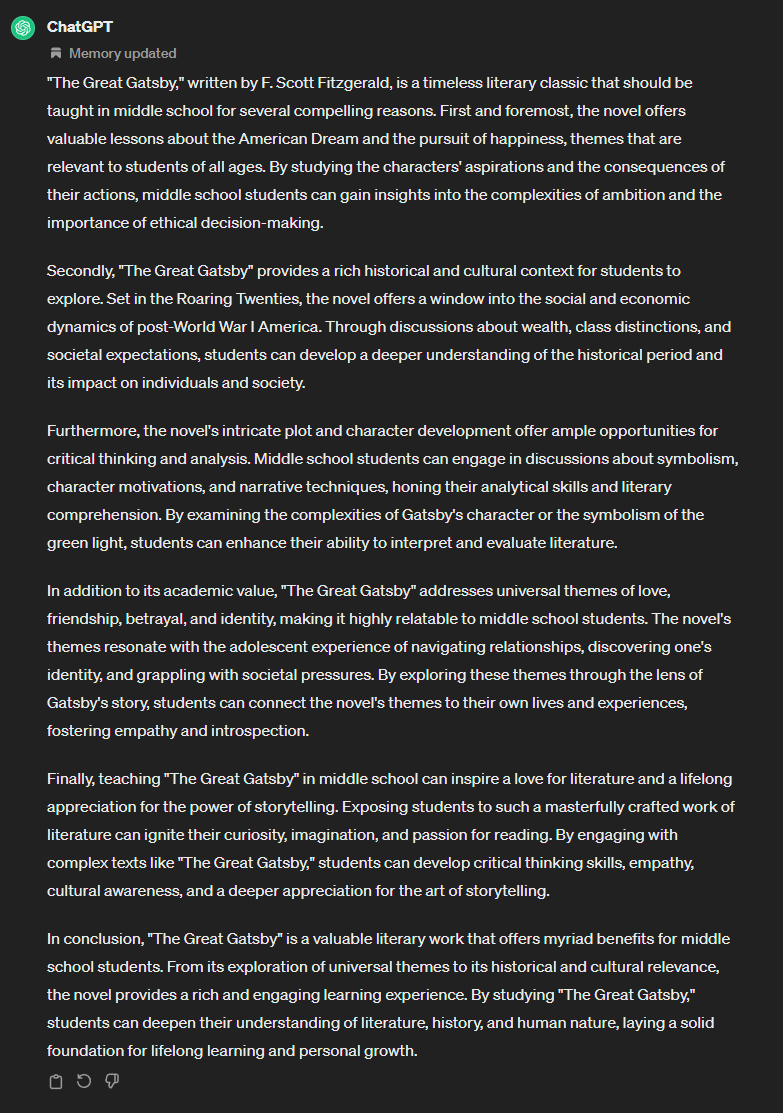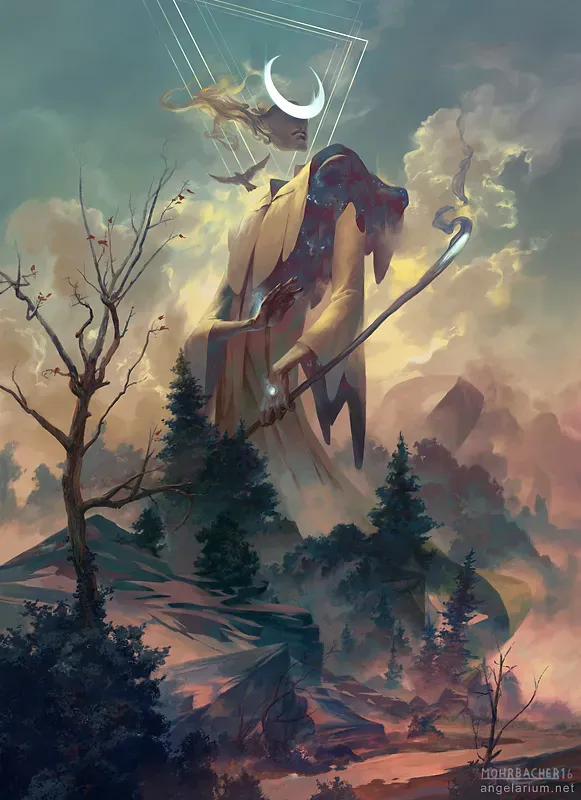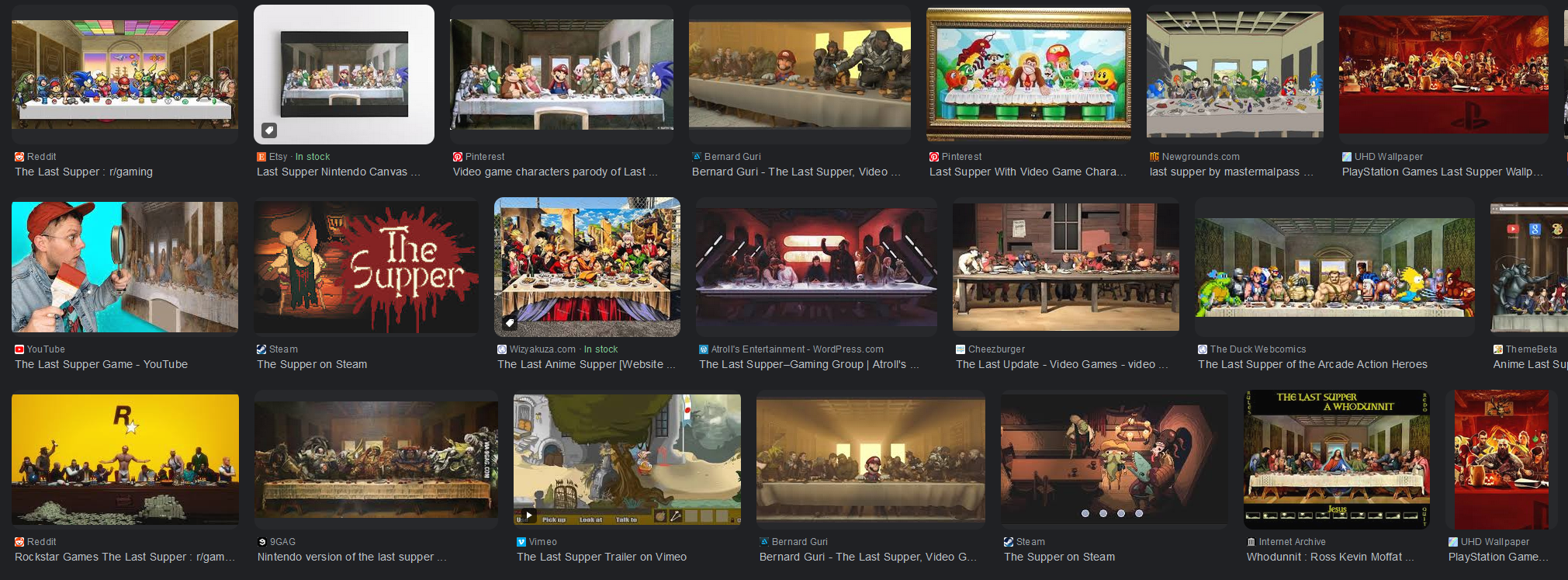Generative AI and Ethics

I am a software developer, trained through Game Design and Development. I am one of the worst people I know at things like handwriting and drawing. I dread pictionary because when I draw something like a face it turns into pizza. I believe that tools have no morality: Guns don't kill people, they are devices to assist in ending life. It's the person pulling the trigger that bears the moral brunt. This is a heavy intro for an article on AI, but I need to firmly state my position: The current way Generative AI, specifically AI art, is being used is based on theft and supporting those who use AI financially is like paying a fence for stolen goods.
I'll start this argument all the way back in my high school years, sitting in A+ certification class. The teacher asked the class "Tell me some true things about computers." A student raised their hand, said "They're smart?" and Mr. Scott clapped his hands and said, "You couldn't be further from the truth. Computers are stupid. All they can do is see if something is on or off, true or false, and everything else they do is based on that fact." Every time someone tries to explain to me how smart technology is, I think back to that class and to the simple reality that machines are stupid by design. They can't do anything besides exactly what you tell them.
A common example used to illustrate is "Tell me every step it takes to make a peanut butter and jelly sandwich." This is something my coworkers at iD Tech camps used to do to illustrate the fact that machines can't think, they only do what is programmed. Lets say the first command you give is "Open the packaging on the bread." This could be done by tearing apart the plastic around the bread, or taking off the cinch tab, or by making a very tiny hole in the bag. They're all technically "Opening" the packaging. The first command that you would have to give is:
"Make sure your left hand is open and empty. Then move that hand to where the loaf is, then gently wrap your fingers around the loaf. Use your open, empty right hand to pinch the plastic cinch tab between your forefinger and thumb, and pull it perpendicular to the knotted plastic."
So, I think my point is made here: Computers are complicated tools that don't have intelligence. So what is this thing we're calling Generative AI? For that I'll have to break down Predictive Text Algorithms. When one is typing on their phone, the phone offers to complete the current word or type in the next word for the user. How does it do this? By keeping data on words that you use! If you type "TH" then it'll go to the database, look up the most used word starting with "TH" and suggest it. If instead you just typed a space, it'll look at the word that you just finished typing and see what the most likely word is that you'll use after that word. For example, when I type "Goodnight" in my phone, it suggests I use "love" next because that's usually how I wish my partner goodnight, and is thus the most used word to come after "Goodnight" in my database.
Predictive Text Algorithms are the base technology used for Generative AI. Generative AI uses training data, in the form of legal documents, works of art, voices speaking, to make something based on that training data. When you tell ChatGPT to "write a five paragraph essay on why 'The Great Gatsby' should be taught in middle school," all ChatGPT is doing is going to the database, looking at English Papers, Grate Gatsby, and Middle School (among many other things) to spit out a bunch of words that, to an untrained eye, looks like a 5 paragraph essay on "The Great Gatsby".

Above is what ChatGPT output based on the prompt I gave above. As you can see, it wrote six paragraphs, many thoughts were repeated, and if this were turned into a teacher it would hopefully be clocked immediately as AI produced. The training data used by ChatGPT is called the Common Crawl, which is a collection of publicly available text data that was scrubbed from the internet. In this example, a student handing in this essay would be accused of plagiarism, since they are taking a body of work, making a machine process it in the form of a prompt, and then passing it off as their own labor. But what if the student edited this essay, got rid of redundancies, and added a paragraph of their own creation? Would that be plagiarism if only 50% of the paper was now ChatGPT? What if, instead of editing, the student read this essay, and then typed it out using their own words and language? The ideas didn't belong to the student, but they're trying to process those ideas through their own lens.
I admit my biases here: my partner is an English teacher, and we've discussed this many times. I'm firmly on the side of "AI should have no place in a student's workflow" since it leads to inadvertent plagiarism more often than not. Additionally, the point of school work is not to waste time, it's to help students engage with new ideas and grow as a person. English was always my most difficult and least favorite subject in school, but these days listening to books is how I keep my mind sharp. Interacting with ideas presented by others, viewing it through a personal lens, and figuring out what to do with those ideas is what keeps the mind sharp in my opinion. ChatGPT is incapable of generating new ideas, it just presents words in an order that they've been presented before, whether it's directly done or chopped and skewed.
The next step on the generative AI journey is meditating on voice. Now, I can't help but be charmed by a video presenting Joe Biden and Donald Trump playing Minecraft together, but for that exact reason it is terrifying. The ability to make anyone say anything if given enough data; any public figure can have words put in their mouths. We are in a new territory in regards to data collection and application at this point. If someone has enough recordings of anyone speaking, we can take that data and turn it into an AI model that can voice anything a user, malicious or otherwise, desires. These voice models, combined with technology like Deepfake or that thing Disney is doing in their TV and movies, can make the dead speak and dance for the entertainment of the living. Personally, I would prefer a new actor, one who can give us a new interpretation of a character, over a weird simulacrum of a previous performance. I think most people felt a little weird seeing the digital Peter Crushing in Star Wars: Rogue One, and there is only more of that in the future of AI. These are the two uses of AI that has a mountain of complaints already, so I'll leave it here for now.

Finally, the topic that kicked off this deep dive: AI Image Generation. Instead of working off of the Common Crawl style of data, which is all public domain text, AI Images are built off artists work taken from the internet. Be it paining, pencil drawing, photos, animation stills, movie stills, or even doodles; these images that were put into generative AI's dataset numbered in the billions. The Images were all sourced from the internet, but no one was notified that their work was being used. If you asked for DALL E to "Generate an image in the style of Peter Mohrbacher," and it produces something that you wanted, but Peter Mohrbacher was never paid or notified that his work was being used in this way, how does that make you feel? What if instead of someone who is alive and making art we chose the style of Leonardo daVinci? Does that make it any better or worse?
My position on all art is that art is a dialogue between the artist and the observer. From paintings to movies to games to music, it's all about one human sending a message to another through the medium of their choice. If we take the humanity out of one half of the equation, is that still art? A lot of AI proponents argue it is. My argument is that there is no why to the art when a machine makes it. You can ask a computer to make you an image of "video game characters in the style of the last supper" and it will pop out an image, but there was no intention to the image. The image is a result of a prompt, a lot of processing power, and training data. If an artist were given that prompt, they would have to make hundreds of decisions: What characters? Which position around the table fits which character? Who is Jesus? What does that say about the artist's feeling on that game? Sure, you get a picture with Generative AI, but only an artist can make decisions whereas G AI just produces output based on the input and different seeded data.

I'll illustrate this with an example from a show I've been watching: Star Trek Voyager, Season 5, Episode 8, Nothing Human. This is an episode where an exobiologist is brought in as a consultant to help with a medical emergency. This consultant is not only a holographic construct based on the research of a doctor, but is also a Cardassian, an alien species who occupied and controlled many planets. Over the course of the episode it is discovered that one crew person's family was killed in the experimentation of this doctor. It turns out Doctor Crell Moset did very unethical things in the name of science. To him, intentionally infecting hundreds(and accidentally thousands due to a containment breach) of non-Cardassians with a deadly disease to discover a cure is a morally reasonable thing to do. All in the name of expanding scientific understanding of this disease. And before you ask, yes, Crell Moset was loosely based on Josef Mengele, a German SS officer who worked at Auschwitz and conducted human experimentation. The crew needs to use the consultant's techniques to save the life of the head of engineering, B'elana Torres, which leads to conflict when she refuses treatment by a "monster" doctor. They go against her wishes and save her life, but the Doctor of the voyager decides to delete the data of his consultant afterwards, as to avoid the temptation of using unethical data in the future.
The reason I talked about Star Trek for a paragraph is this: Is it ethical to use something that was discovered through unethical means? The writers of the episode fall on the side of "If the data was obtained through unethical means, then using that data is also unethical." I will happily admit that I believe murder is a much more unethical action than theft. That said, I still view theft as unethical, especially on the scale of how it was stolen as training data. My opinion is that if someone did work, they should be paid for that work. If all the training data was public domain and had no ownership, that would be ethical in my mind, since all of that work has been paid for in the past. If artists are paid for the use of their art in training data, and they agree to that, then that is also totally above board. If a company is using training data based on stolen work, and then going and profiting off of the AI generated art they generate, then that is a bridge too far in my opinion. This last example is where we are currently in the development of AI art.
That said, I'll go on the record saying that using Generative AI art is always going to be harmful. Every time AI art is being used is one less artist being given a job. When a worker uses a tool, with the right training, that tool helps reduce the difficulty of their job. We're in a world where a single person on a combine harvester can do the work of hundreds of hands. The issue here is that these tools are being used against workers more often than not, replacing skilled laborers with a machine that does a worse job at a much faster rate. We shouldn't be using AI to replace artists, AI should be used as a tool in either the artist's tool belt. I suggest the book "Bullshit Jobs" by David Graeber if you want a better perspective on this point of view.
I think I covered most of my thoughts on the matter. Sure, I could keep going, talking about the future of AI or how to fix it, but I really only know enough to know that what we have right now ain't it chief. The way that the US regulates, well, anything (How is cannabis still a schedule 1 substance?!) I doubt the future is going to be overseen by much more than a CEO looking at how much AI is going to make them. My hope in writing this is to clarify my position on this vast frontier, and hopefully spread my viewpoint to more people willing to listen. Generative AI is a tool, and the way it's currently being implemented is wrong.